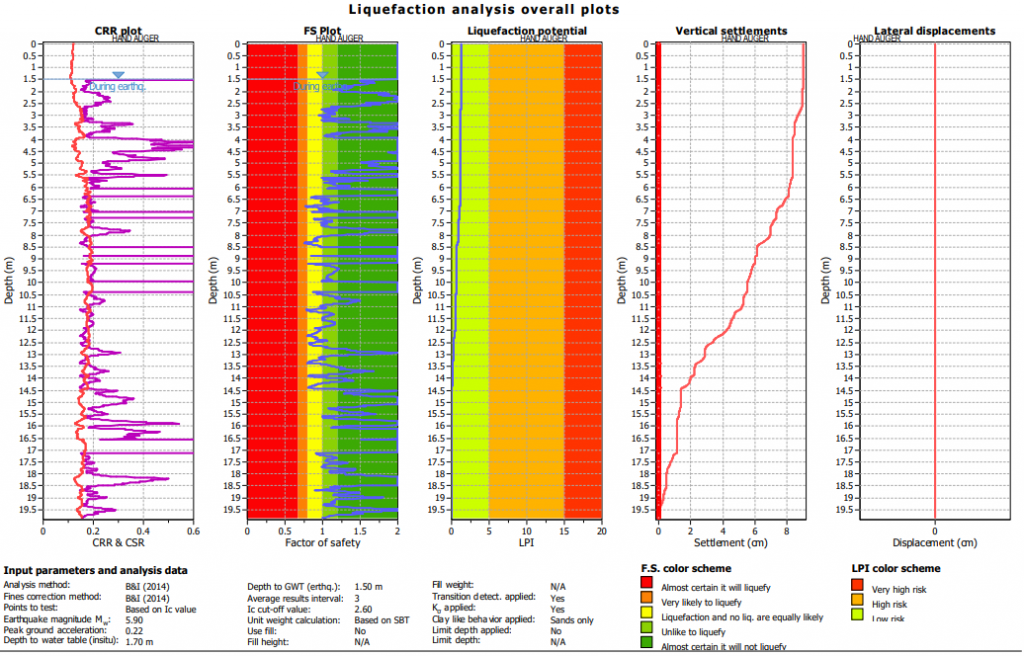Recent Posts
- August, 2021
Cone Penetrometer test results
Categories
- Soil testing
- more
The CPT Test/penetrometer test can be completed from the ground surface with minimal ground disruption. CPT Test rigs vary in size – from small portable rigs to large truck-mounted rigs. Each rig has benefits and limitations, but they all conduct the same test. A cone penetration test rig pushes a steel cone (about 32mm wide) into the ground, generally up to 20m below the surface or until the cone reaches a hard layer. The steel cone contains an electronic measuring system that records tip resistance and sleeve friction. As the cone is pushed into the ground, the soil responds with differing degrees of resistance. This resistance is recorded using force sensors in the tip. At the same time as the sensors are recording resistance at the cone tip, sensors in the friction sleeve are recording sleeve friction along a 100mm length. A cone penetration test typically takes between two and three hours. As the cone goes into the ground, measurements are constantly sent back to the computer.
CPT Test results are used by geotechnical engineering specialists to understand the soil properties and how the ground is likely to behave under different levels of earthquake shaking.
The 2010/2011 Canterbury Earthquakes resulted in significant damage to building foundations. As a result of Canterbury earthquake damage, liquefaction risk has become an important part of geohazard assessments, particularly in earthquake-prone regions. An appropriate geotechnical testing and experienced geotechnical engineer will be required to determine the liquefaction risk of the land.
If you require CPT testing in Hamilton and Waikato region or would like to get further information, please contact Daba Engineering Limited.

Daba Consulting Engineers is a Hamilton-based Civil, Structural and Geotechnical Engineering firm.
No Comments yet!